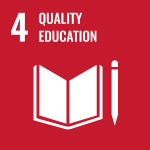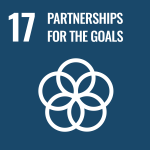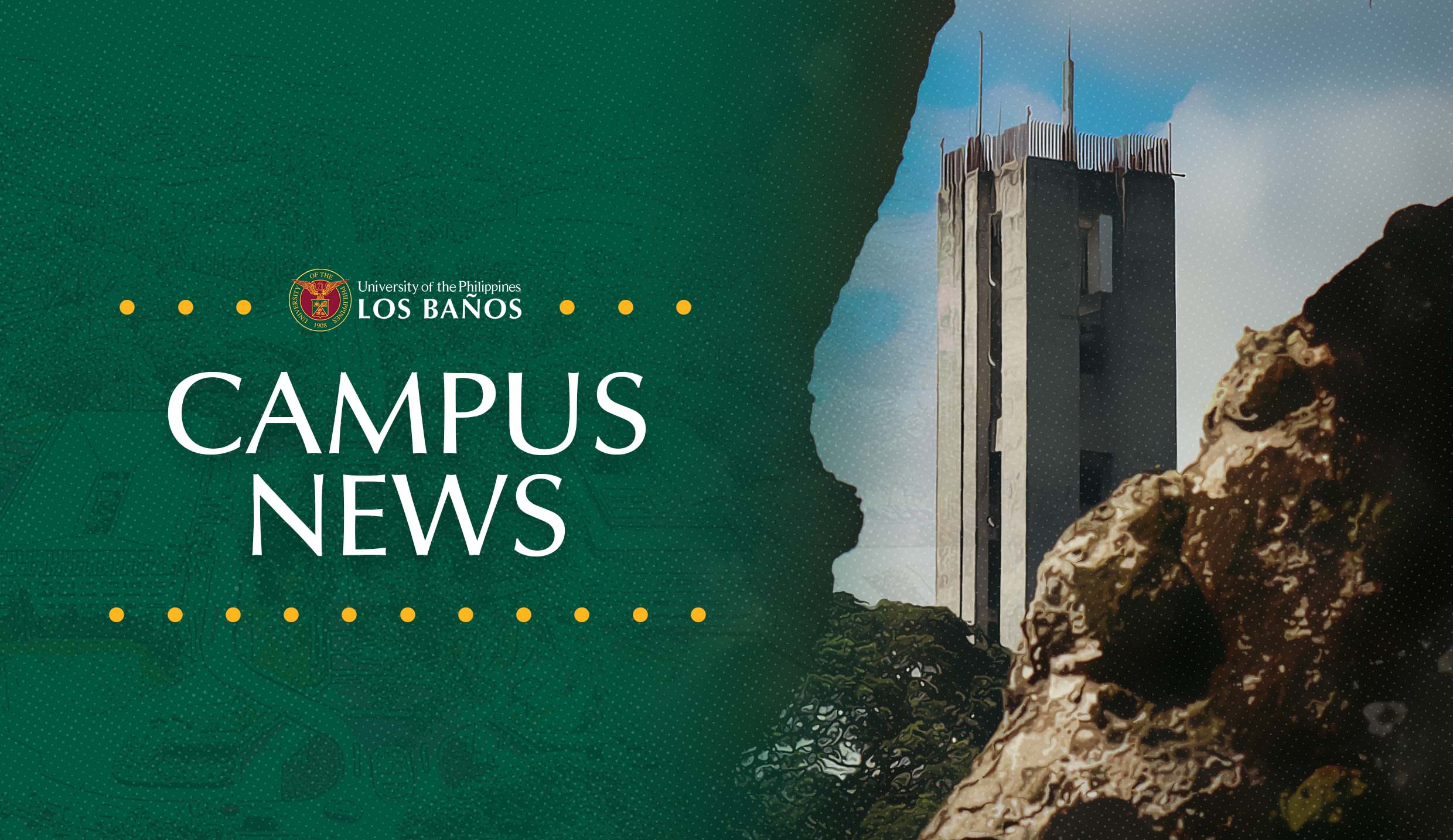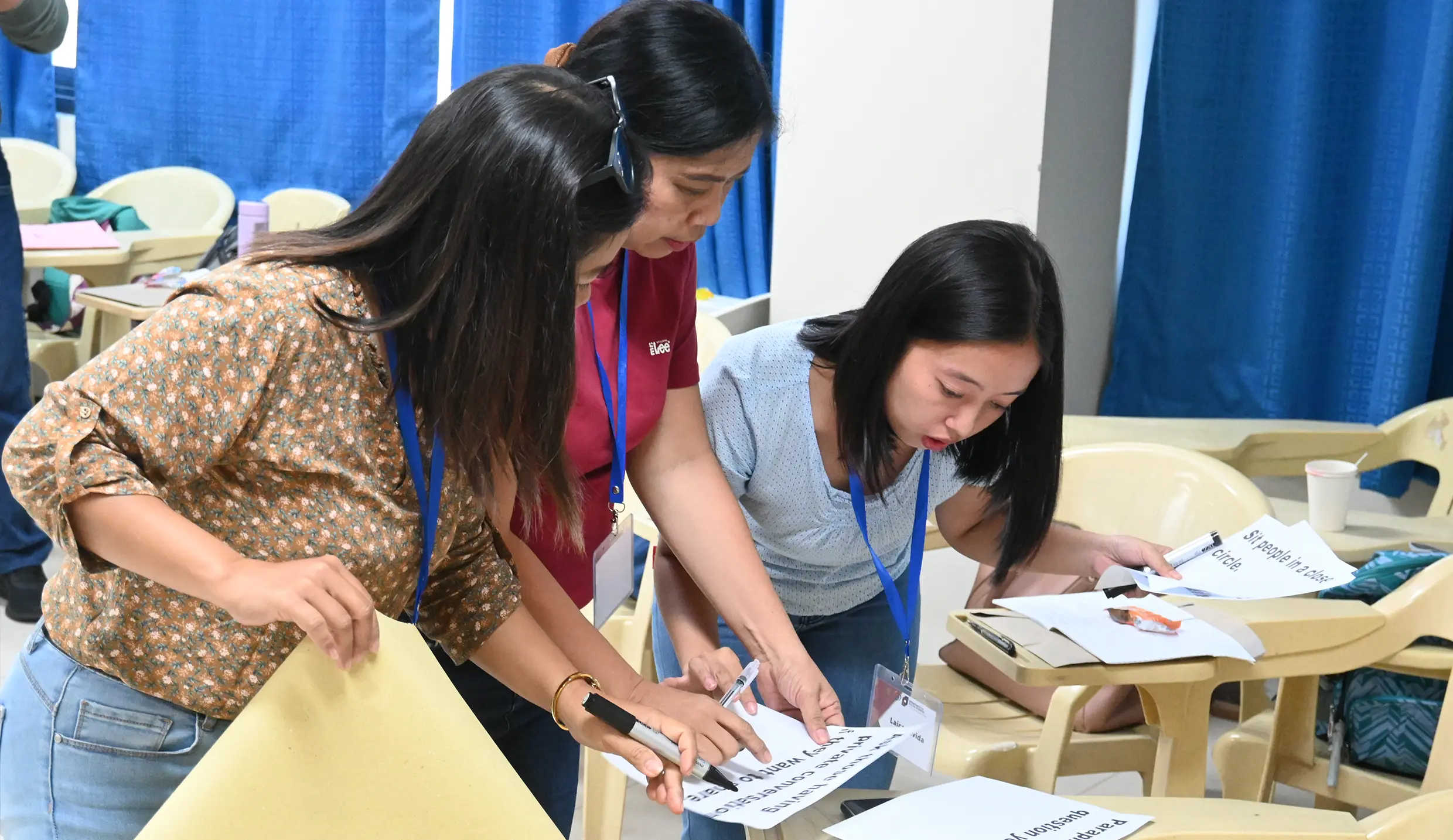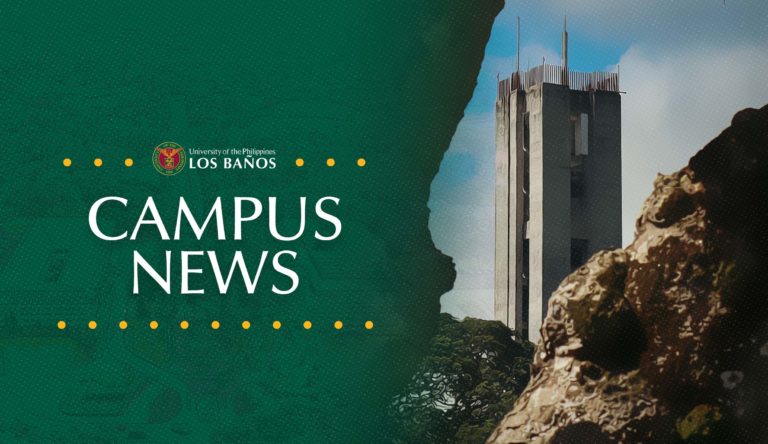
Four Osaka University students synthesized their learnings and experiences from their visit to UPLB through a debriefing session facilitated by the UPLB Learning Resource Center (LRC) entitled “Rice Up!: Harvesting Insights from the Philippines’ Rice Culture.”
The debriefing session wrapped up their three-day visit, which sought to foster a comprehensive understanding of the scientific and cultural perspectives of rice culture in Southeast Asian societies. The participants first toured facilities in UPLB, including the ecotourism spot Makiling Botanic Gardens and the Philippine Rice Research Institute and International Rice Research Institute.
They also met with UPLB experts such as Dr. Eureka Teresa Ocampo, director of the College of Agriculture and Food Science (CAFS)’s Institute of Crop Science, Dr. Rodmyr Datoon, director of CAFS Agricultural Systems Institute, and the UPLB Rice Varietal Improvement Team.
LRC OIC Director Gonzalo H. Amante, Jr. began the debriefing session with the saying, “Kanin (rice) is life—we believe that its importance is like the knowledge that provides nourishment to our minds.”
Amante expressed his hopes that the visit would help strengthen alliances and promote the capacities of rice culture among Southeast Asian countries.
The participants first shared their observations and insights from their visit. Atsuhiro Yano contrasted Japan’s and the Philippines’ scientific efforts: “My hometown is researching, studying to improve rice’s taste [to make it] more delicious. But here, the main objective is to increase the yield.” Another student, Koichiro Ueno, expressed interest in incorporating computer science into agriculture.
They were then tasked to each create a rice culture art piece that illustrated their understanding and appreciation of global agricultural practices. Kana Miyamoto said that before the visit, “I ate rice every day with no passion but just to get nutrients. But after this activity, I realized that rice has the potential to [bring] happiness to all people who eat it. Rice had a role not [only] to give nutrients to people but also [to] allow talking to [and conversing with] each other.”
Miyamoto, a pharmaceutical science major, stated that “the most impressive part” of her experience was observing “how crops are made, and how we can change [their] character or potential” to cure diseases and other health problems.
Biological science student Masaya Kawasaki and Associate Professor Yosuke Shimazono highlighted the interconnectedness of societies and rice. Kawasaki’s collage demonstrated the significance of using biotechnology to improve rice production and ecological systems to address global issues such as deforestation and food loss.
Shimazono’s art piece reflects the concept of sharing hard work in rice production, from overcoming rice vulnerabilities to harvesting the produce. “Rice shapes the community, and the community makes the rice,” he concluded.
The debriefing session, facilitated by Sheryl Edd P. Hermosa-Ebron and Joshua Michael G. Jonas of the LRC, is aligned with its mandate to complement the Office of International Linkages in promoting exchange programs and providing opportunities for cultural and academic exchange. (Jennina Marie Mora)



